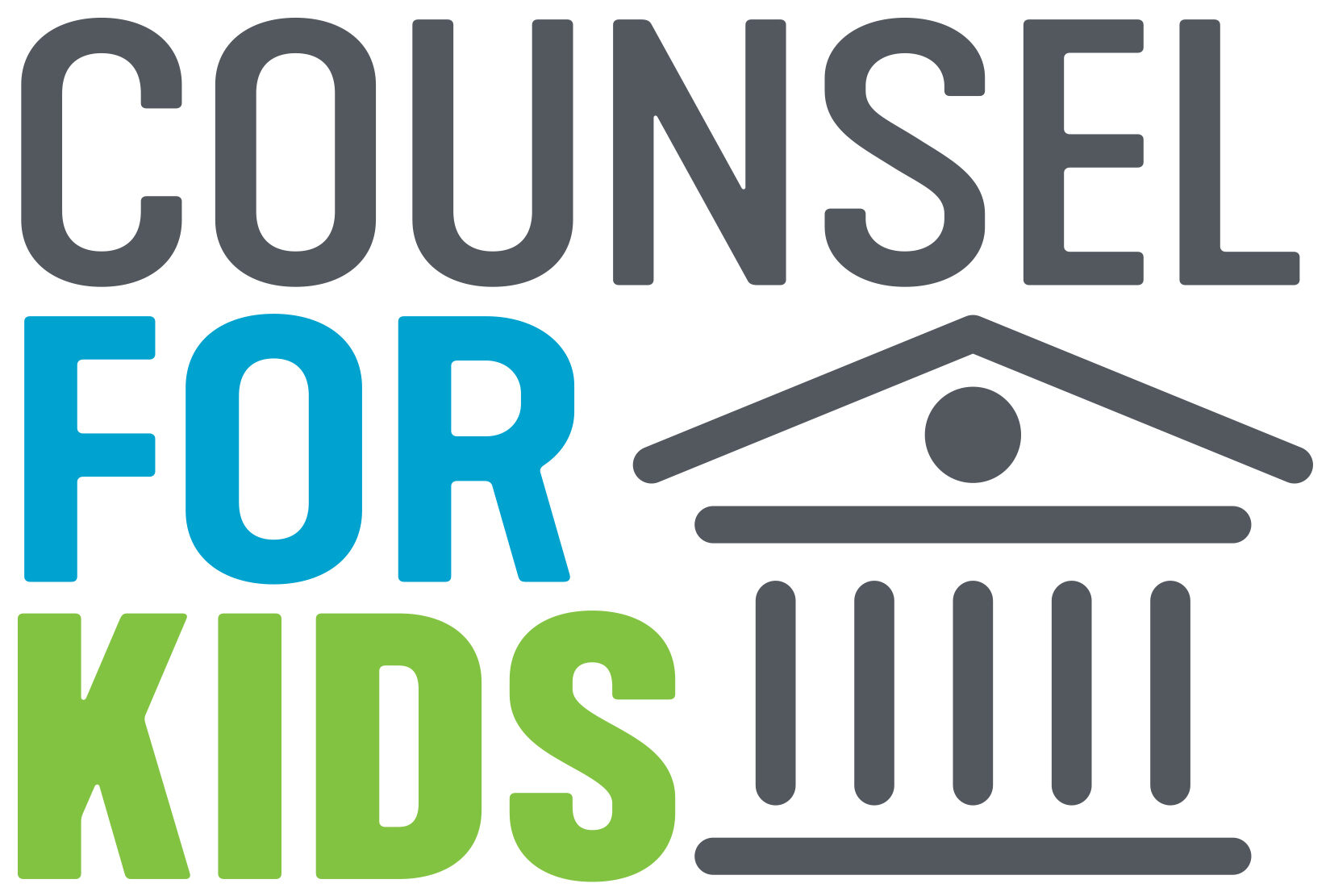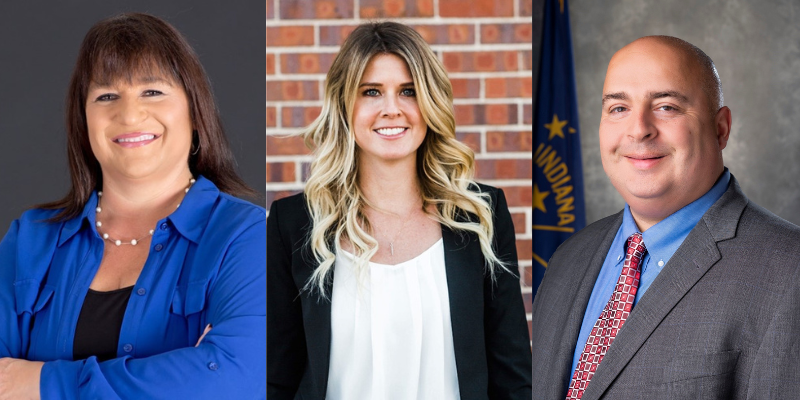Executive Summary of Initial Outcome Evaluation of NACC’s Counsel for Kids Campaign by Sarah Bryer Consulting
In the spring of 2021, the National Association of Counsel for Children (NACC) launched a state-based “Counsel for Kids Campaign” (Campaign) to ensure the right to counsel for every child in the child welfare system. The Campaign incorporated twin goals of advancing reform and building out local advocacy capacity. NACC provided tools, resources, and direct technical assistance (TA) to statebased partners seeking to initiate, expand or improve upon children’s legal representation.
Halfway into an initial three-year grant, NACC commissioned a neutral, third-party evaluator to conduct an evaluation of the Campaign’s progress and understand its impact. At that point, NACC had worked with seven states in different stages of policy change. The evaluation found that the Campaign provided relevant TA that met or exceeded its initial goals, and that with additional resources it could achieve even greater impact establishing and expanding access to counsel for kids.
Methodology
The evaluator collected qualitative data to surface patterns and uplift nuances that might be clouded by a quantitative approach. The evaluator conducted a full document review and semi-structured, qualitative interviews with NACC national staff and with the lead advocate in each of the seven states (AK, CO, FL, IN, ID, SC, WA).
Support for State Campaigns
State-based advocates appreciated and utilized NACC’s substantive assistance. The evaluation revealed several themes related to this support.
On-Point Assistance: NACC staff provide a variety of assistance including campaign strategy planning, communications support, research, talking points, help identifying allies, coalition building,and answering questions from legislators. NACC staff serve as a sounding board, give feedback on materials, provide the muscle for drafting more extensive documents, testimony, and letters, and present at committees, trainings and working groups.
“NACC was able to respond to legislators quickly … They had a high level of
specificity and accuracy.”
A Culture of Humility: The Campaign incorporates a “culture of humility” to its work by treading carefully in state waters. Campaign staff are both respectful of and sensitive to the local advocates’ desires and the political contexts in which they operated. NACC typically strategizes with local partners about how best to wield their influence and frequently conducted work out of the public eye to avoid a perception of meddling by a national organization.
“People (here) really don’t like being told what to do. (NACC) was very
appropriate in not stepping on toes.”
“NACC is persuasive with some but not all attorney groups, so we strategized about the best place for NACC to be the most effective.”
National, Independent Expertise: NACC successfully walk the tightrope of knowing when to step back from the spotlight while also capitalizing on the benefit it brings as a national expert that wasn’t entangled in local politics.
“Having NACC at the table brought the conversation up out of the personal and back into the realm of best practice.”
“NACC gave the work national credibility. [We] could talk about this being a national movement and paint a bigger picture.”
Enhancing Local Advocacy Capacity
NACC’s secondary goal for their campaign is to build out local advocacy acumen. By providing state advocates with support around strategic planning, coalition development, cross-state connections and communications infrastructure, the Campaign both advances current efforts while deepening advocacy know-how. Five states that were either initiating their campaigns or were at an inflection point benefited from capacity building assistance. Most of the states that received capacity building TA indicated that the assistance was crucial.
“When NACC came in, it became a campaign. Gave it a backbone.”
“Because of NACC, things happened more quickly than they otherwise would have.”
NACC staff help formalize the coalition structure with principles and guidelines so that members of the public could see how it operated, allowing for healthy membership expansion.
“We developed a broader coalition, so it wasn’t just lawyers – but included people with lived experience: parents, foster parents of youth, young adults who were youth in the system. In the past we had just turned to the usual suspects. Our coalition has now doubled in size.”
NACC Campaign Staff would have liked the state coalitions to include even greater racial and ethnic diversity. This remains challenging and requires further investigation and action.
Communications Infrastructure: The Campaign helps to build out some states’ infrastructure for communications through website improvements and increased social media presence, but states have limited capacity to maintain these channels independently of NACC staff.
Creating Peer Connections: Several states expressed that NACC’s facilitation of cross-state connections improved their work and were eager for more peer-to-peer opportunities. Similarly, five states elevated NACC’s national conference as a critical place to learn about the campaign, gain new strategies and hold discussions with key state stakeholders on neutral ground.
Campaign Growth Areas
States identified multiple ways that the campaign could have even greater impact.
Advocacy Support: State advocates almost universally felt stretched thin. Suggestions for
increased advocacy support included:
- Funding for a full-time staff person in the state, having the Campaign take over their website and social media channels, and funding a lobbyist in the state;
- Resources for communications strategy such as ad purchases and help writing and placing editorials and news stories;
- Discretionary funds to pay for campaign activities such as food for meetings or stipends for youth focus groups.
Evaluation and Research: Multiple states mentioned the need for assistance with data collection and evaluation during both legislative and implementation stages and national research such as studies that compare the best interest attorney model to a client-directed attorney model.
Increased Capacity for NACC to Influence State Actors: Several states were interested in NACC building out its capacity to influence state actors. Suggestions for NACC included:
Developing connections with the departments of children’s services in every state;
- Developing connections with the departments of children’s services in every state;
- Establishing NACC’s independent relationships with state legislators;
- Bringing the heads of administrative bodies from other states to present to legislators; and
- Expanding national connections to CASA to help shift thinking on the local level.
Peer-To-Peer Connections: States were interested in more peer-to-peer connections both for advocates and state actors. Two ideas for these connections included:
- Building out cohorts of advocates at different stages of their campaigns; and
- Connecting state actors (administrators, judges, legislators etc.) to similarly positioned actors in other states, who could serve as trusted sources of information.
Litigation: While litigation was not part of NACC’s strategy, several states indicated a desire for connections to law firms and/or help building out a litigation strategy.
Implementation: Finally, states thought that after a change in policy, it would be helpful for the Campaign to provide on-going support for trainings, standards setting, data collection and evaluation.
Conclusion
The Counsel for Kids Campaign provides crucial and unduplicated support to state-based advocates.Campaign staff navigated the needs of local coalitions and the varied political waters in which they operated. State advocates universally appreciated the support from the National Campaign and could articulate, with specificity, how the Campaign’s involvement advanced their advocacy skills and goals. Recommendations for improvements centered on requests for increased services and supports rather than a change in the current practice of TA provision.
For more information about the Counsel for Kids evaluation and Counsel for Kids Campaign please contact NACC Executive Director Kim Dvorchak at Kim.Dvorchak@NACCchildlaw.org. Contact Sarah Bryer Consulting on LinkedIn or at sarahnbryer@gmail.com

